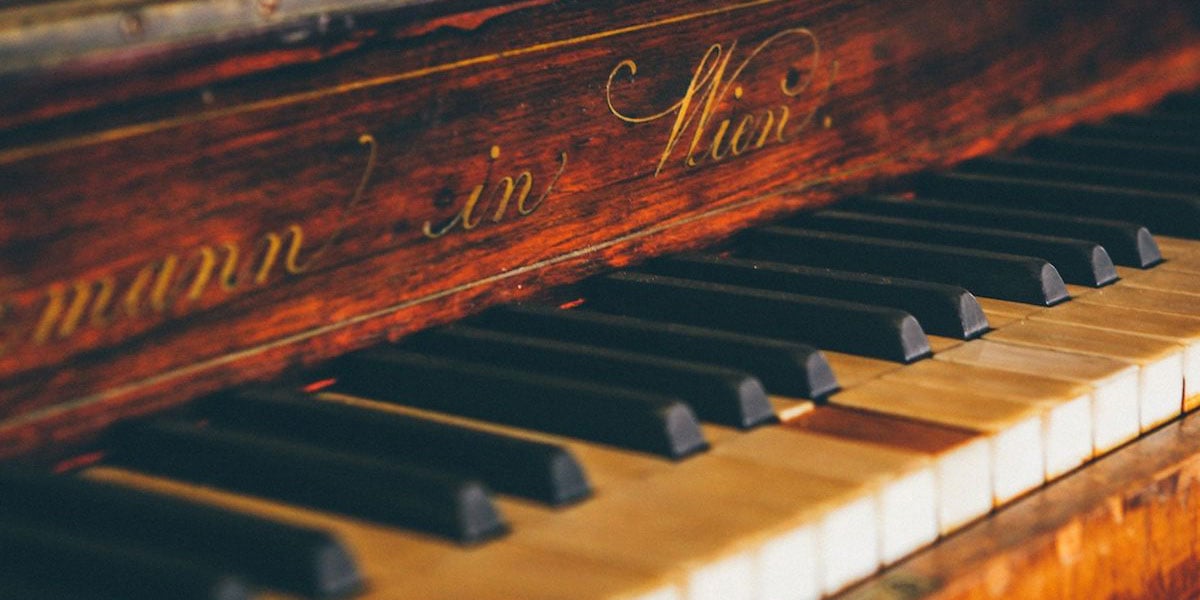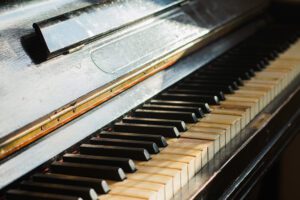Four questions to ask before accepting a free piano
July 23, 2021 •Stephen Reed

Free pianos have been gifted to many friends and family members over the years, often when the owner of the piano is moving or has passed away.
While the offer of a free piano is often intended to be a generous one, on the other hand, this can be a perfect example of "You get what you pay for."
So how can one determine whether such a gift is worth accepting?
Phil Schoonmaker, a veteran piano consultant for M. Steinert & Sons has been in the piano business for four decades and has seen plenty of free pianos.
We’ll review the Top Four questions he thinks people should ask before accepting a free, used piano.
1. Can the piano hold a tuning?
Care and maintenance of a piano is like that of a vehicle. More regular use of a car requires more servicing. More occasional use can allow you to spread out the times between servicing. A piano that can’t be tuned, is like a car that won’t drive straight.
Still, if you leave a car sitting in a garage idle for a few months, then it will need to be serviced, too, in order to prevent the internal mechanics from becoming damaged.
So, too, with a piano. A piano that has not been well-maintained over the years is likely to be the piano equivalent of a “lemon”--unable to hold tune.
2. Who has examined the piano recently? Was it a professional piano technician?
Many used pianos have not received proper care and maintenance, i.e. tuned at least annually and periodically regulated.
Lack of maintenance can result in structural damage and serious defects such as cracked bridges and soundboards, loose pinblocks, center pin issues, worn hammers and dampers, and rusty strings and tuning pins.
Any of these parts being repaired or replaced can become an expensive proposition.
Only an experienced piano technician can judge the structural and mechanical condition of a piano—even an accomplished pianist may not be aware of important flaws.
As a result, a professional piano technician is needed to evaluate any used piano before accepting it.
3. Do you know about the piano’s environment? Its number of owners?
Pianos should not be subjected to very dry air for extended periods of time. The relative humidity of the piano environment is best kept above 35%. 40% to 60% is better. Historically the National Piano Technicians Guild has settled on 42% relative humidity as a good standard.

Extreme dryness is not good for a keyboard though some technicians recommend a higher humidity, yet not excessive. Indeed, many pianos can function quite happily over a broad range of ambient relative humidity.
What can kill a piano is frequent and rapid cycling between low and high relative humidity.
Consider the distortion of a wet sponge by the kitchen sink as it dries from the edges toward the center on a winter day. Applied to a piano soundboard, that same rapid drying process is guaranteed to crack first the finish, then the wood itself.
So it when this rapid cycling or extreme dryness occurs that a wooden stringed instrument can suffer damage. Air conditioning is good for a piano when the outside humidity is quite high.
During the cold winter months with central heating, humidification of dry household air is recommended. If your “free” piano needs a humidifier, that will be an additional cost.
Constant exposure to too much heat or cold over time can cause the strings or other piano parts to move from their optimum position. This affects the tension and the tone of the instrument.
Other things like dust and dirt can gather inside the casing which will affect the sound quality, as can large, sustained weather events. Older pianos are more likely to have these issues as the internal parts are simply worn with age.
A given piano may have had several different owners, each placing the piano in different environments. As much as possible, find out as much as you can about the different owners.
4. Was it ever a good, quality instrument?
-
In addition to any maintenance record, the brand of the piano can help to identify its original quality, and a serial number of the piano can help to determine its year. . It establishes the year of manufacture according to the Pierce Piano Atlas.
More obscure piano brands are listed in this publication, and there is no other accessible way to determine the age of any brand. The Pierce Piano Atlas serves piano buyers in the same way that an automobile manufacturer atlas serves car buyers.
 Research can help you discover whether the free piano in question was ever really good.
Research can help you discover whether the free piano in question was ever really good.
Of course, certain names have more value than others due to their reputation and, consequently, their desirability. If the brand is not currently being manufactured, it will usually have less significance and value.
Pianos have been manufactured for well over 300 years, and there are over 7,500 piano brand names in the Atlas. Nearly all of these brands are defunct and have no market value.
A quick look at our article “What is my piano worth?” has some specifics on brands and their value and musical potential.
“Free” isn’t always free
Each of these questions need to be assessed before accepting a free piano. Such a gift may cost more to repair than a new one that has a warranty and no issues.
In short, a “free” piano may be free in name only.
A friend who offers you a free piano no doubt has the best of intentions. However, you are within your rights to ask the above four questions to determine whether the piano in question is worth accepting. Chances are, a new or certified used piano will have far less repairs than any free piano.
M. Steinert & Sons Marketing Manager Chuck Johnson notes another, more serious consideration when considering whether to accept a free piano.
Johnson has seen free pianos being traded around by well-meaning parents, with the best of intentions. But ultimately, the poorer examples of these free pianos can extinguish the musical interest in a child that might have existed otherwise.
Read more about the differences between New and Used pianos, both of which M. Steinert & Sons has sold since 1860.
Plus, read more about M. Steinert’s rental, entry-level acoustic, and digital pianos.
Featured Articles
Categories
- Beginner Pianos (24)
- Boston Pianos (16)
- Comparisons (30)
- Designer and Specialty Pianos (8)
- Essex Pianos (10)
- Events (11)
- Featured (24)
- Institutional (3)
- Joy of Piano (15)
- Learning About Pianos (72)
- News (35)
- Pricing and Cost (19)
- Resource Center (125)
- Roland Pianos (6)
- Spirio (15)
- Steinway Pianos (71)
- Student (14)
- Teacher (13)
- Used Pianos (21)
- Videos (19)

